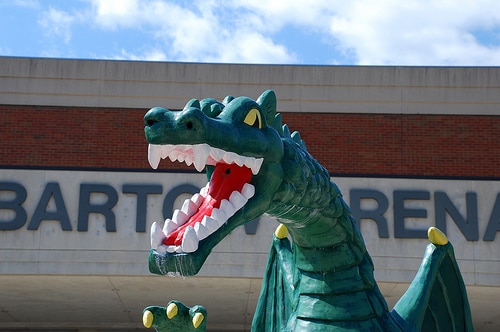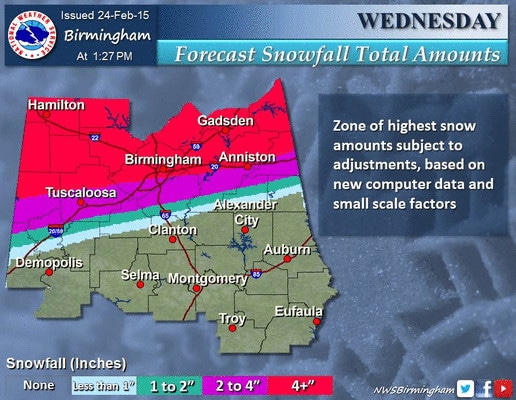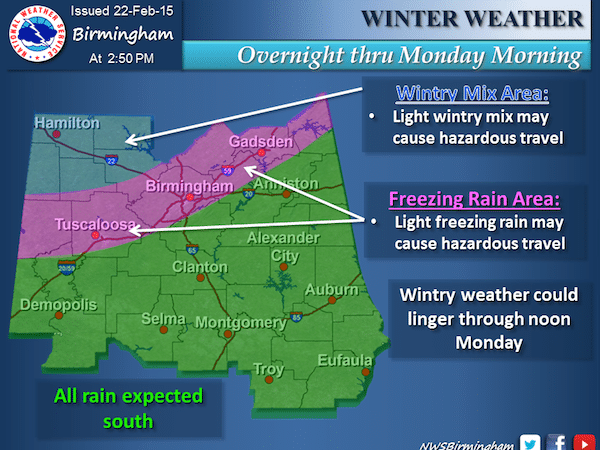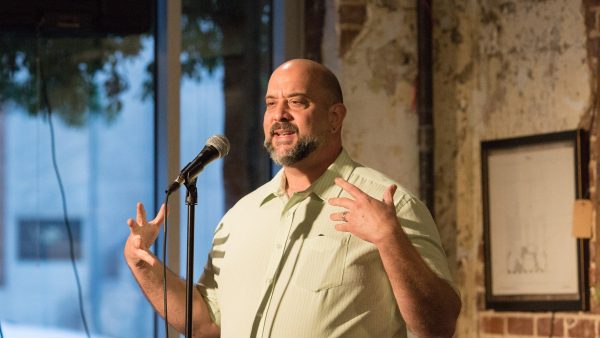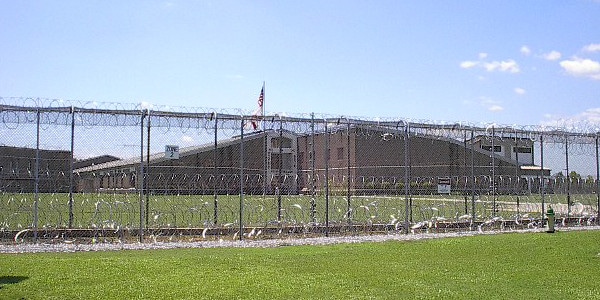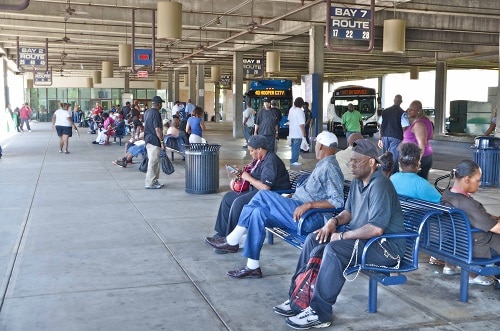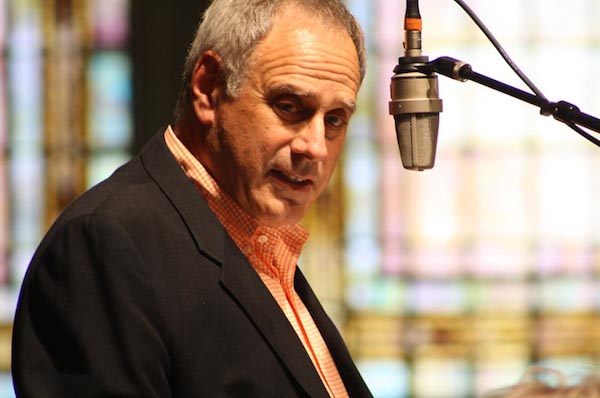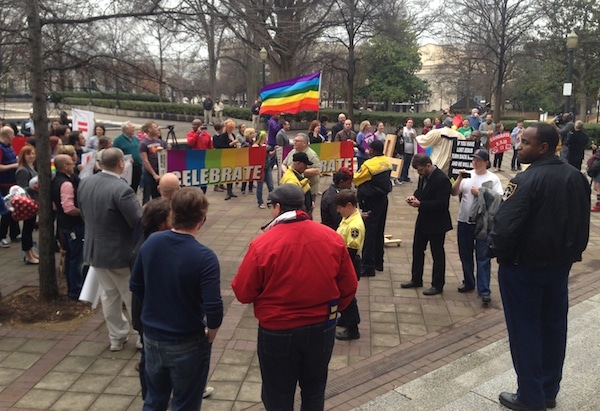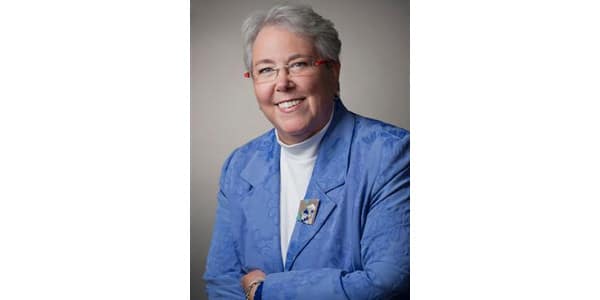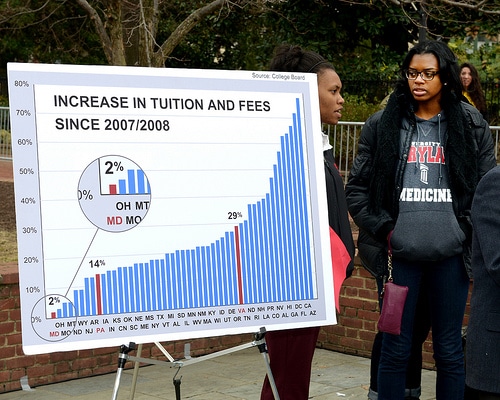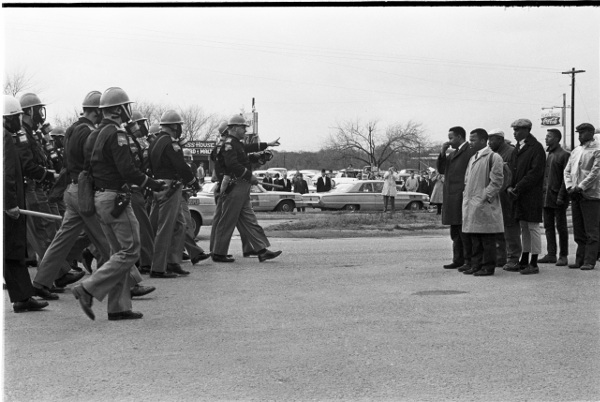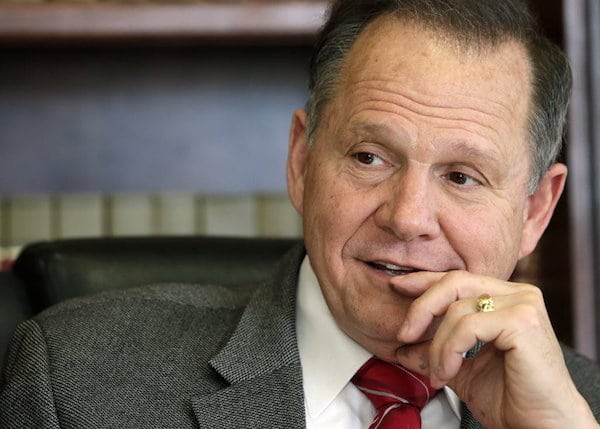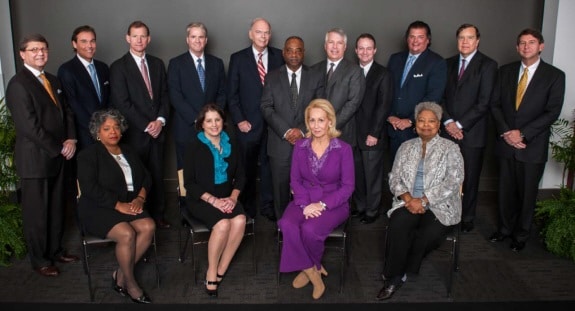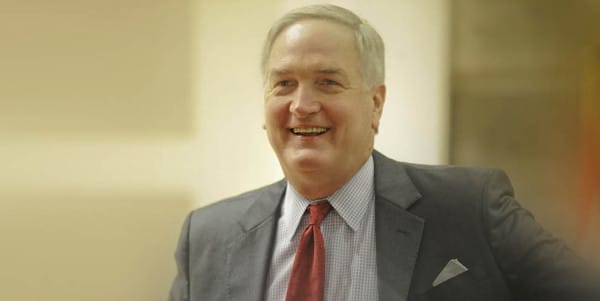Issues
Area Schools Closed Or Delay Start Thursday
While most of the heavy snow missed the greater Birmingham area, many schools are on delayed starts for Thursday due to the threat of ice and dangerous travel. North of the Birmingham metro, which saw much higher snowfall on Wednesday, some school systems are closed.
John Archibald: Memo Details UAB’s Defensive Plan
UAB President Ray Watts faced a strong backlash after ending the university's football program in December. Football boosters were upset, but Watts also lost three "no confidence" votes over governance issues. As this unfolded, Watts worked with a private public relations firm to combat the fallout. A memo obtained by AL.com details the strategy.
Alabama’s Prison Reform Task Force Readies Bill For 2015 Legislative Session
Alabama's overcrowded prison system has been under close scrutiny since the Justice Department started investigating it last year. If big changes aren't made during the upcoming legislative session, the state risks a federal takeover. Alabama's Prison Reform Task Force is working to draft legislation to improve the prison system. State Senator Cam Ward of Alabaster is the task force's chairman. Ward sat down with WBHM's Rachel Osier Lindley to talk about the proposed legislation, and who has been involved in the process.
Winter Storm Warning for N. Central Alabama — Schools Closing, Gov. Bentley Declares State Of Emergency
The National Weather Service has issued a winter storm warning for much of north central Alabama from 9 a.m. Wednesday though midnight Wednesday. The warning covers an area roughly along the Interstate 20 corridor and north. UAB classes and campus operations will be cancelled for Wednesday, Feb. 25th and additional cancellations are likely.
Magic City Marketplace: Birmingham Job Market
Birmingham's unemployment rate is at its lowest point since the recession and about 5,000 jobs were added last year. That's good news. But the shiny headlines are tempered by the fact that Birmingham job growth is slower than other southeastern cities. We talk about that in this week's Magic City Marketplace.
Schools Delayed Due To Potential For Icy Roads
Several schools around north central Alabama are on delayed starts Monday.
“Sam” To Bring Produce To Food Deserts
The economic development group REV Birmingham has turned a federal grant into a refrigerated truck meant to bring fresh produce to Birmingham's food deserts. The truck's name is Sam. WBHM's Joseph Thornton has the story.
John Archibald: Thousands Continue to be Spent on City Travel
The Birmingham mayor's office and city council spent more than $300,000 dollars on travel last year, more than any other city in Alabama. So far in 2015 the trend has continued. It's an issue Alabama Media Group columnist John Archibald has written about regularly.
Arc Stories: February 2015 Edition
Stories About Change: One man’s encounter with a celebrity has him in way over his head; and a camp counselor encounters not the good kid or the bad kid, but the worst kid.
AL’s Resistance To Same-Sex Marriage Could Hurt The State’s Economy
Apple might be headed into the auto manufacturing business. Apple’s CEO -- Tim Cook -- is from Alabama, and the state is known as an auto-manufacturing hot-spot. Alabama sounds like a natural fit for the company's automotive expansion. But Alabama Media Group political commentator Kyle Whitmire says the state's recent bad press surrounding same-sex marriage might turn companies off of doing business here.
Running Birmingham Track Club’s 1200 Mile Challenge
Approximately 5,000 runners hit the streets of Birmingham this weekend for the annual Mercedes-Benz Marathon. WBHM contributor Javacia Harris Bowser recently started running with one club that's training for the race. But this group -- The Birmingham Track Club -- sets an even more ambitious goal for its members: Run 1200 miles in one year.
Magic City Marketplace: Gay Marriage and the Workplace
It's now been one week since same-sex couples could get marriage licenses in Alabama. Most counties are now following a federal judges' ruling overturning the state's ban on gay marriage and the decision could also affect employers. We talk about that in this week's Magic City Marketplace.
Lectures Behind Bars
Few people normally go to Donaldson Correctional Facility, a state prison in far western Jefferson County. But twice a month UAB faculty travel to this maximum security prison to lecture to inmates. It's been happening for almost three decades. Reporter Ashley Cleek sits in on a class.
John Archibald: Same-Sex Marriage Confusion
More Alabama probate judges are issuing marriage licenses to same-sex couples after a federal judge's ruling striking down Alabama's gay marriage ban went into effect on Monday. It's not all counties as some judges cite an order by Alabama Chief Justice Roy Moore instructing judges not to follow the federal ruling. While gay marriage advocates celebrated in the counties which did issue licenses to same-sex couples, Alabama remains a state where opposition to gay marriage is high.
Nick Patterson: Poverty Still A Problem In Booming Downtown Birmingham
Birmingham is in the midst of a revival, with increased economic and real estate development. But in a city where about thirty percent of the population lives in poverty -- that's nearly twice the national average -- the staff of the Birmingham weekly newspaper WELD say the shine of the city's revitalization can distract from some of its biggest problems. Since May, they've been exploring poverty in Birmingham. Nick Patterson, editor of WELD, joins Rachel Osier Lindley to talk about the city's poverty problem.
Alabama Symphony Orchestra Appoints New Conductor
Carlos Izcaray performs his first concert as music director designate during two Masterworks concerts this weekend. He spoke with WBHM's Michael Krall...
Alabama’s Top Stories, Harper Lee’s New Book and Same-Sex Marriage
Alabama has been in the national spotlight for two reasons this February: "To Kill A Mockingbird" author Harper Lee says she'll release a new book, and some Alabama started issuing marriage licenses to same-sex couples on Monday. Both are controversial, for their own reasons. Kyle Whitmire, political commentator for the Alabama Media Group joins WBHM to discuss these stories and more.
Says You! Host and Creator Richard Sher Dies
The creator, executive producer and host of the long-running wordplay program Says You! died February 9th after a battle with cancer.
Judicial Chaos Complicates Same-Sex Marriage In Alabama
Despite judicial confusion throughout Alabama, on Monday several Alabama counties did issue same-sex couples marriage licenses, including in Birmingham, Huntsville and Montgomery. Rachel Osier Lindley explains what happened across the state the day Alabama became the 37th to recognize same-sex marriage.
Alabama’s Only Openly Gay Lawmaker Overjoyed as State Recognizes Gay Marriage
On Monday Alabama probate judges can begin issuing marriage licenses to same-sex couples. It's the result of a decision last month from a federal judge in Mobile striking down the state's ban on gay marriage. Birmingham Representative Patricia Todd is the only openly gay lawmaker in the state legislature. WBHM's Andrew Yeager spoke to her about this turn of events. Todd starts by explaining what happened last week when an envelope with no return address was delivered to her Montgomery office.
Magic City Marketplace: Free College Tuition
President Obama cast a spotlight on community colleges when he announced a plan last month to offer free at such institutions. It's a plan that could have significant effect on Alabama as the state tries to make its 2-year college system a bigger educational and economic player. We talk about it in this week's Magic City Marketplace.
Same-Sex Marriages Begin In Alabama On Monday
Barring a last-minute stay from the U.S. Supreme Court, on Monday Alabama becomes the 37th state to recognize same-sex marriage. Despite some heated political debate, most probate courts around the state are getting ready to issue marriage licenses to gay couples. But some wont be following suit.
Shaping History with a Camera
In March, Selma will mark the 50th anniversary of Bloody Sunday. That's the day police beat demonstrators attempting to march to Montgomery in support of voting rights. Saturday an exhibit opens in Selma of some of the most iconic images of that day. They're from the late photographer Spider Martin.
John Archibald: Roy Moore and Same-Sex Marriage
Monday appears to be the day for same-sex couples in Alabama. Barring action by the U.S. Supreme Court, a federal judge's ruling will go into effect making Alabama the 37th state to recognize same-sex marriage. One of the most outspoken opponents of the ruling is Alabama Chief Justice Roy Moore. But Alabama Media Group columnist John Archibald suggest there's more to Moore than religion-infused pronouncements.
New Play Tells Nelson Mandela’s Story Through Video, Dance and Poetry
Nelson Mandela, former South African President and anti-apartheid revolutionary, was the inspiration for a new play co-written by Birmingham poet Sharrif Simmons. Red Mountain Theater Company's production of "Mandela" premiers tonight. Simmons sat down with WBHM to discuss what Mandela means today, and how he worked to contemporize Mandela's story -- including using a video screen at the heart of the production.
Alabama Chief Justice Roy Moore Tells Probate Judges They Don’t Have To Issue Marriage Licenses To Same-Sex Couples
Barring a stay from the U.S. Supreme Court, probate courts around Alabama will begin offering marriage licenses to same-sex couples on Monday, February 9. But Alabama Chief Justice Roy Moore sent a letter to probate judges this week telling them they're not required to issue marriage licenses to same-sex couples. And in some counties, probate judges say they'll stop performing marriage ceremonies. Alabama Media Group political commentator Kyle Whitmire joins WBHM to discuss this and more.
UA BOT Member On Dr. Ray Watts, UAB Football Controversy
Supporters of the University of Alabama at Birmingham's recently canceled football program have vowed to protest when the UA System Board of Trustees meets in Birmingham later this week. WBHM contributor Greg Bass spoke with Board of Trustees member Finis St. John of Cullman about the controversy surrounding UAB football and the role of the Board of Trustees in the governance of UAB.
Stay On Same-Sex Marriage Decision From U.S. Supreme Court Unlikely
A federal appeals court has cleared the way for same-sex marriages to begin next week in Alabama. The state has seen political debate, along with a few stays, motions and rulings since U.S. District Judge Callie Granade struck down Alabama's ban on same-sex marriage last month. Here to sort through what the courts are up to is Henry Strickland, dean of the Cumberland School of Law at Samford University. He says it's unlikely the U.S. Supreme Court would honor Alabama Attorney General Luther Strange's request for a stay.
Appeals Court Denies Stay Request On Alabama Same-Sex Marriage Decision
Alabama Attorney General Luther Strange on Tuesday asked the Supreme Court to keep a hold on a district judge's decision overturning the state's ban on gay marriage. The filing came after the 11th U.S. Circuit Court of Appeals refused to issue a stay, paving the way for Alabama to become the 37th state where gays can legally wed.
Magic City Marketplace: The Future of the Historic Tax Credit
Some of downtown Birmingham's redevelopment projects have been helped along by Alabama's historic tax credit. But that credit is capped and will sunset next year. So developers and political leaders are debating what to do with this popular incentive. We hear more from Cindy Fisher Crawford in this week's Magic City Marketplace.
Birmingham Museum Of Art To Feature Paintings By Dutch Masters
The Birmingham Museum of Art opens a new exhibit Saturday that features works of well-known Dutch and Flemish masters. The exhibition called "Small Treasures" includes paintings by Rembrandt, Vermeer and their contemporaries. These artists are often known for large canvases, but these paintings are small.
John Archibald: Alabamian vs. American
A federal judge who struck down Alabama's same-sex marriage ban has released a letter clarifying the ruling applies to all government officials, not just those named in the suit. The ruling is on hold for now, but it's the latest in a legal firestorm sparked Friday when the decision came down. We talk about it with Alabama Media Group columnist John Archibald.


